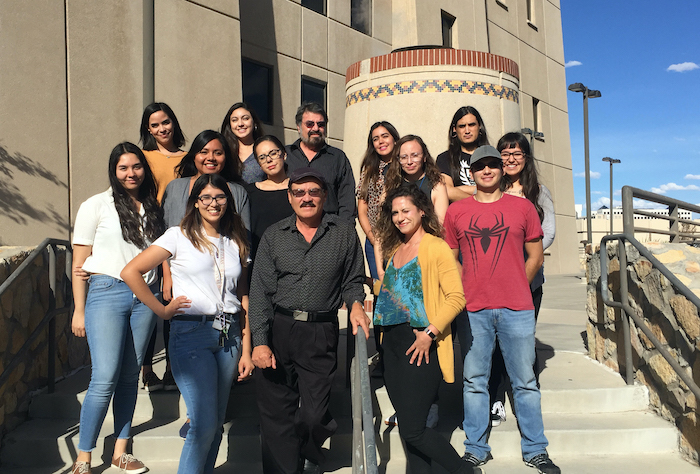UTEP RISE Program Fostering Scientific Potential
Last Updated on May 20, 2020 at 12:00 AM
Originally published May 20, 2020
By Julian Herrera
UTEP Communications
The Research Initiative for Scientific Enhancement (RISE) Program at The University of Texas at El Paso Department of Biological Sciences is at the helm of biomedical and behavioral research on the border, utilizing 21st century technology to promote biomedical research that includes anti-cancer drug discovery, vaccine development against infectious agents, drug addiction, health disparities, and other basic research.

For over 16 years, RISE has provided financial support and mentorship to the next generation of aspiring scientists, many of whom are first-generation college students. Qualifying students receive stipends to conduct undergraduate research in biological sciences and other STEM fields during the academic year.
The RISE Program provides undergraduate and graduate students an opportunity to engage in hands-on research training to prepare them for academic and other scientific careers. RISE is funded by a grant from the National Institute of General Sciences which administers research training programs aimed at increasing the number of biomedical and behavioral scientists from institutions that serve historically underrepresented individuals in the field of science. Most RISE students are mentored by faculty of the Border Biomedical Research Center (BBRC) Program at UTEP. Thus, much of their research addresses the biomedical and health needs of the bicultural population of the El Paso/Ciudad Juarez region of the Texas-Mexico border.
Leading the program is Renato Aguilera, Ph.D., professor of biological sciences and director of the Biology Graduate Program, and deputy director of the Border Biomedical Research Center. He and his co-investigators, Elizabeth Walsh, Ph.D., and Wen Yee-Lee, Ph.D., provide mentoring and professional development activities to undergraduate and graduate RISE scholars from departments across the campus.
“The program was intentionally designed to give students opportunities to develop critical skills for successful careers in science,” Aguilera said. “From a humble beginning with 25 participants, the program has served over 250 trainees over the past 16 years. It is impressive that over 90% of the trainees obtained their B.S. degrees while completing their research projects. Of those who completed their undergraduate degrees, 72 have completed master’s or Ph.D. degrees.”
The program is currently funded until 2022, and by then it is anticipated that more than 350 students will have received RISE support. Upon successful renewal of the program, it would be funded for an additional 5 years. Aguilera wants to ensure students at UTEP are aware of the program and take full advantage of all it has to offer.
There are currently 12 Ph.D. trainees that are fully funded by the RISE Graduate Scholars Program, funding that includes tuition and fees. Up to now, 19 Ph.D.s have been awarded to RISE graduate students and the vast majority are currently pursuing postdoctoral research at prestigious institutions. With opportunities for academic training, research and conference travel, students who participate in the program are better prepared for the challenges they will face in the field of science. Students complete the program with a comprehensive understanding of their research field and experience in the use of advanced technological equipment. Many go on to careers as researchers at prestigious universities such as Princeton and Harvard, government research facilities, or biotech companies.
Stephanie Medina, an undergraduate student majoring in cellular and molecular biochemistry, has found the RISE Program particularly beneficial, supporting her financially and providing guidance through the process of applying for graduate school. Motivated by her peers and mentors, Medina intends to pursue a Ph.D. in cancer biology upon graduation.
“I believe that programs like RISE are very beneficial to the scientific community and to individuals attending university in a border city like ours,” Medina said. “These programs provide students with the opportunity to gain research experience, network with other students in the scientific community, and connect us with valuable mentors.”
